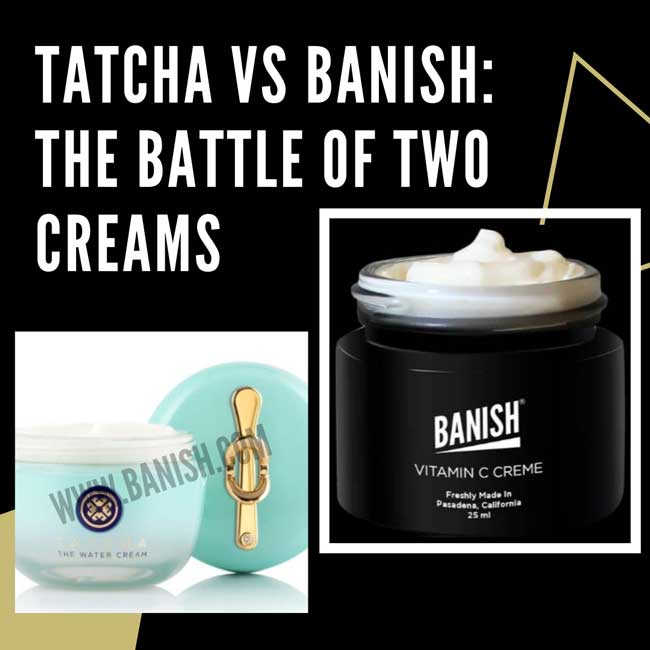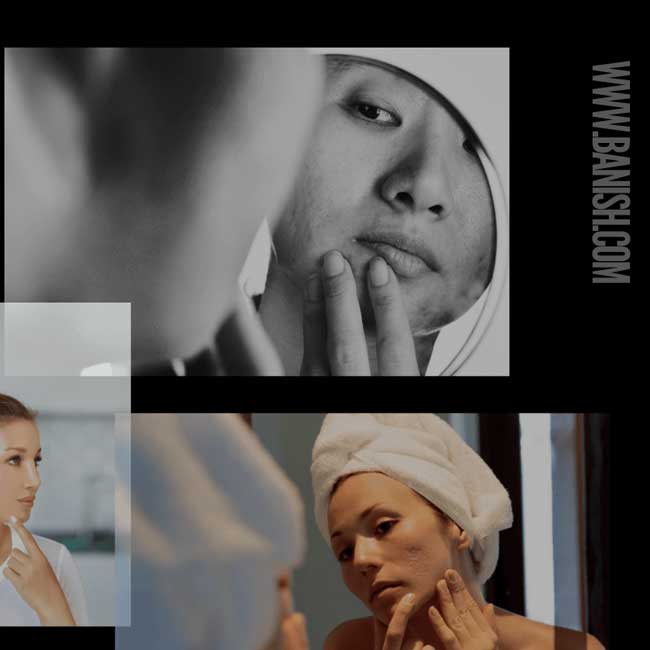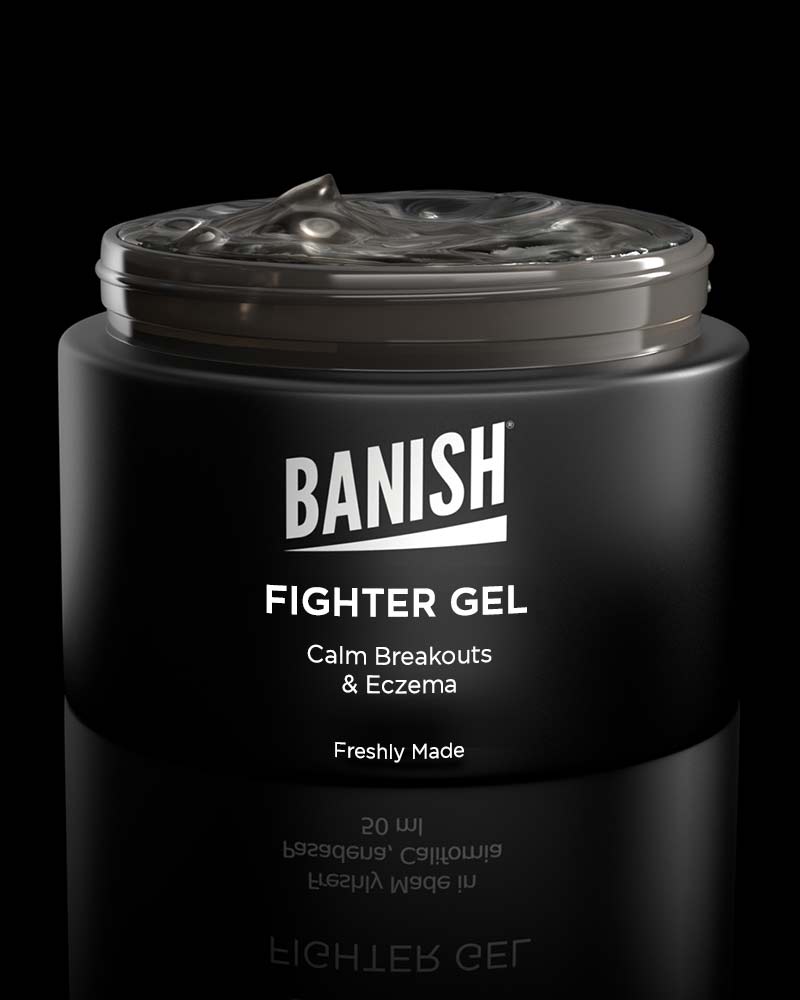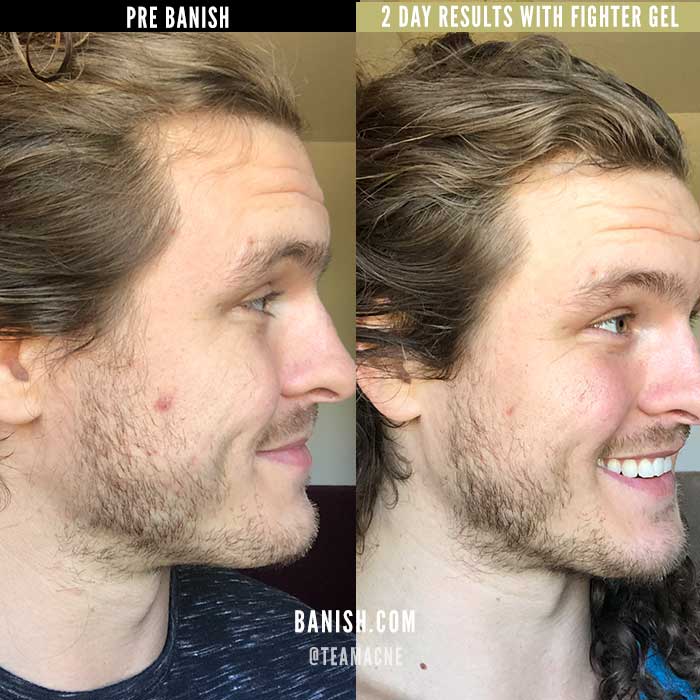Acne carries a pretty hefty stigma, it's no joke. If you've got a spot and your sisters cousins uncle sees it, you best believe they've got something to say about it as well. I've personally heard it all from "just wash your face" and "don't worry and it'll go away" to "quit wearing makeup and your skin will clear up" . Yet here I am doing a sugar free, refined carbohydrate free, stress free, makeup free, and hormones controlled regimen but am still experiencing breakouts- what gives? While I can't write a blog post about every single acne myth I've ever had said to me, here are some of my favorites. Debunked.
Common Acne Myths Are
- Stop worrying and acne will disappear
- Not washing face
- Makeup Causes Acne
- Going out in the sun more treats acne
- All acne is caused by bacteria
- Hypoallergenic Products Are Better for Acne
If you don´t worry it'll just go away
While stress does cause acne, this one is easier said than done AND stress isn't the only aggravating factor in pesky breakouts. Even if you "quit worrying about it" your acne could be due to other things such as food intolerances, sensitivity, chemical filled cosmetics, hormonal imbalances, and even a spike in blood sugar. not worrying about it probably won't get you very far.
My Advice: I actually suggest the opposite, educate yourself as much as possible. Keep a food journal to see how you feel after eating certain meals and if they trigger a breakout, switch out your laundry detergent to a natural one to see if your skin becomes calmer, invest in a hypoallergenic pillow, look into adaptogens for balancing your hormones; the world is your oyster!
Give any method you chose to test at least two to three months, or six weeks for a full skin cycle before drawing any conclusions. As you become educated on your own skin as much as you possibly can, you will learn what your triggers are and what does or doesn't work for you. Also if stress is an issue for you try implementing daily yoga, a long walk, meditation, a bubble bath, or some form of exercise to help your mind and body cope with the negative effects of stress,
Not Washing Enough
If I "just washed my face" with about every drug store and high-end cleanser then why am I still faced with acne (no pun intended)? Turns out, acne isn't cause by dirt. Hygiene has very little to do with the development of acne, and most acne sufferers, such as myself, actually over compensate in the hygiene department which in turn leads to more acne.
Using too many harsh soaps or chemicals can irritate the skin and make the condition worse. Ironic because we think of these products as cleansing our skin and drying out our spots, but overly dry skin is stripped of its natural oils and must overcompensate by producing an excess amount of sebum, which then clogs the pore. the truth here is, overly clean skin causes acne. Not dirt.
My Advice: If you're not seeing noticeable results with your current routine try cutting back on the harsh cleansers and swap out all of your skincare products for more natural hydrating ones. Try implementing your skincare routine only once a day, at night. At times we over compensate by washing two or even three times a day and are aggravating our skin, over drying it, and in turn making our acne worse.
I never thought of myself as someone who had dry skin, I figured since my skin was acne prone that automatically meant it was oily. WRONG. A good way to check this is to feel your face when you get out of the shower, if you move it and it feels stiff stingy, or like paper then you have dry skin. If it feels like the rest of your body or dough-like then you probably have normal or oily skin.
3- Makeup causes acne
Say it with me, makeup does not cause acne. If you are worried, you can search fornon-comedogenic (pore clogging) products and make sure to solely use those and completely remove it at the end of the day. Acne can be aggravated by makeup, but makeup does not specifically cause acne. After all, many people who wear makeup do not suffer from acne. There are certain products of course that can irritate your skin due to added fragrances or can cause hormonal imbalancesdue to toxicities in the product, but for the most part makeup does not cause acne. Like any pore clogging product, the only way that makeup can cause acne is by not completely removing it at the end of the day. Tiny micro particles can get lodged into your skin and clog up your pores, so after cleansing and before moisturizing be sure to tone with a PH balanced toner to remove any traces of hidden makeup.
My Advice: Give your skin a break! To determine if makeup is aggravating your skin try giving yourself a few makeup free days during the weekend or switching to a non-comedogenic foundation. It is possible that certain chemical ingredients or fragrances can irritate your skin so it is also important to try switching to all natural or completely organic makeup products if possible
One of my favorite phone applications to check ingredients, toxicity levels, and carcinogens in makeup, skincare, and everyday house products is The app has been a real game changer because it rates products on a scale of 1-10 (1 being clean and 10 being dirty) based on how "dirty" their ingredients are. I've personally found that sticking to natural products with a clean rating of 3 or below keeps my acne at bay. Of course, everyone's skin is different but if you feel your products areirritating your skin, looking at the ingredients may be a good place to start. I made the personal choice to quit wearing makeup a few months ago but some of my favorites used to be the L'Oreal infallible pro-matte , L'Oreal infallible pro-glo Andalou Naturals cc cream and for concealer Tarte shape tape I found that these products had all day coverage without breaking the bank or breaking out my skin.
The sun makes acne better
I used to be addicted to tanning. I would show you some pictures here but it's pretty darn embarrassing and most of those pictures are gone because of that reason. The reason why I was so in love with that false glow? It cleared up my skin, fast (or so I thought), It helped to dry out any spots and kept my skin looking clear and glowy for years; eventually I realized it was terrible for my skin and overall health and kicked that habit to the curb. Apparently, what I was really seeing there was just an illusion, my skin was getting darker so the inflammation around the pimples was becoming less noticeable. Sunlight may give you the appearance of clear skin at first and have mild inflammatory effects but in the long run is not worth the risk of extremely dry skin, skin cancer, and signs of premature aging. For some the sun causes relaxation and a decrease in stress, which in turn can cause a decrease in acne. However, there are other more beneficial ways to decrease stress.
My Advice: If you want to try an alternative to those harsh UV rays give the Neutrogena Light Therapy Acne Mask a whirl. It uses red and blue light technology to naturally, and chemically free treat acne. Blue light helps to target acne causing bacteria while red light reduces overall inflammation. It’s a great way to sit down and relax for 10 minutes without worrying about the harsh effects of the sun like skin cancer or premature aging. I personally own this mask and use it occasionally when I have a large breakout that refuses to go down.
If you do plan on going tanning after all we're only human two of my favorite protective sunscreens are the class="qowt-stl-Hyperlink">Neutrogena clear face breakout free sunscreen and the Coola matte tint mineral sunscreen Both are excellent for shading you from the sun without clogging your pores.
Acne is caused by too much bacteria
Well, this is a half-truth. Acne can be caused by an overgrowth of bacteria (which is why antibiotics work for some people even after just a short course of use), but for the majority of us, it isn't actually the problem itself but is instead a by-product of another underlying problem, namely sebum production and composition. In fact, acne-causing bacteria can be completely absent in acneic skin! This is why products like benzoyl peroxide may not do anything for your skin.
If antibiotics didn't work after a short, temporary course - it's likely that bacteria are not the root of your acne problems and you need to start looking at other causes and not continue taking more antibiotics as that can more harm than good.
Hypoallergenic products are better for sensitive skin
"Hypoallergenic" is only meant to imply that a product is unlikely or less likely to cause allergic reactions than non hypoallergenic products, and therefore is better for sensitive or problem skin.
But the problem with this is there are neither industry standards nor legal requirements which must be fulfilled in order to make this claim; there are no ingredient restrictions, regulations, guidelines, rules, or procedures of any kind, anywhere in the world, for determining whether or not a product qualifies as being hypoallergenic.
"Dermatologist tested" on a cosmetic label is also not a good indication that the product is reliable and can live up to the claims. You absolutely should not rely on the "dermatologist tested" claim.
Modern cosmetic and skin care products are safe for most users and adverse reactions to them are very rare considering the number of people in contact with numerous products over a lifetime of use.
If sensitive or allergy-prone skin is one of your concerns, then the thing to look for is products that are free of irritants. The major irritants that show up, even in products labeled organic or natural, are fragrance (both synthetic and natural fragrance are equally bad for all skin types), alcohol (isopropyl, SD, or denatured alcohol), and harsh cleansing agents like sodium lauryl sulfate (not sodium laureth sulfate, which is a mild cleansing agent).
You should view the term hypoallergenic merely as a marketing term, and nothing more. Anyone can use that term to represent their brand's identity, as there are no regulations.
Once you find a product that works, this will be the product you always use"
Wouldn't this be nice, huh? Unfortunately, this couldn't be more misled. Sometimes we are led to believe that when we find a product that works for our skin that it will always work for us. However, this completely ignores the fact that our skin changes - and fairly frequently. This isn't to say that your skin's needs change every week, but they can certainly change at least 2x a year, with the change of the seasons, if not more due to things like environment changes (moving to a new location, different water), diet, and stress.
For example, I used one moisturizer for about a year before my skin's needs changed and I had to start looking for a new product. It's important to note that it isn't the product that "stopped working", it's just the natural changes in your skin that make it need something new.
Acne is curable
Wait what? That's wrong! This is total bogus, acne is curable I know of people who have cured their acne and have seen 1000 million YouTube videos on people explaining "how they cleared their skin" . Probably what you're thinking right am I right? Because I thought the same exact thing. BUT, it turns out this isn't true. Acne is a chronic disease which has no official cure. There are washes, creams, diets, and lifestyle changes that can be used to manage it, but as of today there isn't one specific "cure".
Acne can last anywhere from a few years as a teen to 20 or more as an adult. It is also a continuous skin condition, which means that it lives on and beneath the skin for years. Depending on hormones, stress factors, and other lifestyle choices acne can come and go at different points in your life but if you have the disease, you should always be treating your skin as if it were acne prone.
My Advice: Don't give up! Just because acne doesn't have a cure, doesn't mean that it isn't manageable. Instead of relying solely on skincare products, try digging towards the deeper root of your acne and tackling it that way. Experiment with diet changes like cutting out dairy, working out more frequently, increasing your water intake to see how simple things may affect your skin.
And once you've gotten it under control, don't expect to never have a spot ever again in your life. because of hormones, stress, higher levels of inflammation, and just down right genetics acne sufferers are predisposed to having flare ups every now and then- and that’s okay. I would argue that my skin is generally, for the most part, clear but q I can still expect a random stress breakout or a spot around that time of the month. Maybe one day I'll grow out of it, but for now I can deal with the odd spot.
Contributed by Kali Kushner and Veganacnesufferers





























Leave a comment
All comments are moderated before being published.
This site is protected by hCaptcha and the hCaptcha Privacy Policy and Terms of Service apply.